Social Sciences
Social sciences are a group of academic disciplines that study human society and social relationships. These disciplines use various methods and approaches to examine the social aspects of human behavior, culture, and interactions. The social sciences include disciplines such as anthropology, sociology, psychology, economics, political science, and geography.
Key Concepts
- Anthropology: The study of human societies and cultures across time and space.
- Sociology: The study of human social relationships, institutions, and interactions.
- Psychology: The study of the human mind and behavior.
- Economics: The study of the production, distribution, and consumption of goods and services.
- Political Science: The study of political systems, governments, and political behavior.
- Geography: The study of the Earth's landscapes, environments, and the relationships between people and their environments.
Methods and Approaches
Social scientists use a variety of methods and approaches to study human society and behavior:
- Qualitative Research: In-depth analysis of non-numerical data such as interviews, observations, and case studies.
- Quantitative Research: Statistical analysis of numerical data to identify patterns and trends.
- Comparative Analysis: Studying similarities and differences across different societies or groups.
- Interdisciplinary Approaches: Integrating knowledge and methods from multiple social science disciplines to gain a comprehensive understanding of social phenomena.
Study Tips
To succeed in social sciences, consider the following tips:
- Read Widely: Explore a wide range of social science literature to understand different perspectives and approaches.
- Critical Thinking: Develop your critical thinking skills to analyze and evaluate social issues and theories.
- Research Skills: Hone your research skills, including data analysis, literature review, and citation methods.
- Interdisciplinary Connections: Recognize the interconnected nature of social sciences and how different disciplines can inform each other.
By understanding the key concepts, methods, and study tips in social sciences, you can develop a comprehensive understanding of human society and its complexities.
.◂Science Worksheets and Study Guides Fifth Grade. Newton's Laws of motion
Study Guide Newton's Laws of motion
Newton's Laws of motion  Activity Lesson
Activity Lesson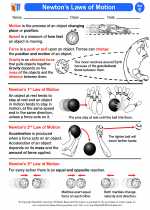 Newton’s Laws of Motion
Newton’s Laws of Motion  Worksheet/Answer key
Worksheet/Answer key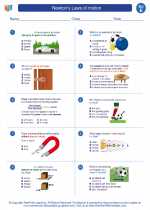 Newton's Laws of motion
Newton's Laws of motion  Worksheet/Answer key
Worksheet/Answer key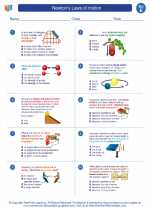 Newton's Laws of motion
Newton's Laws of motion  Worksheet/Answer key
Worksheet/Answer key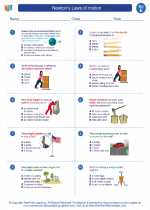 Newton's Laws of motion
Newton's Laws of motion  Worksheet/Answer key
Worksheet/Answer key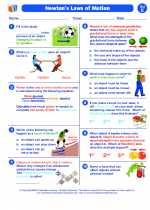 Newton's Laws of motion
Newton's Laws of motion  Vocabulary/Answer key
Vocabulary/Answer key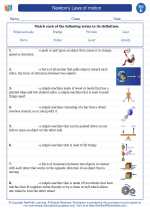 Newton's Laws of motion
Newton's Laws of motion  Vocabulary/Answer key
Vocabulary/Answer key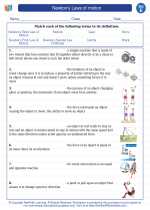 Newton's Laws of motion
Newton's Laws of motion 

 Activity Lesson
Activity Lesson
 Worksheet/Answer key
Worksheet/Answer key
 Worksheet/Answer key
Worksheet/Answer key
 Worksheet/Answer key
Worksheet/Answer key
 Worksheet/Answer key
Worksheet/Answer key
 Vocabulary/Answer key
Vocabulary/Answer key
 Vocabulary/Answer key
Vocabulary/Answer key

The resources above cover the following skills:
PHYSICAL SCIENCE (NGSS)
Motion and Stability: Forces and Interactions
Students who demonstrate understanding can:
Support an argument that the gravitational force exerted by Earth on objects is directed down.